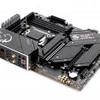Performance - CineBench 20
Challenges of testing a processor when there are no reference motherboards
Each year, it is getting increasingly complicated to test processor performance accurately; the motherboard manufacturers control many settings. On the other hand, Intel does not release reference review motherboards anymore; thus, motherboards manufacturers will do tons of tweaks 'at default' in the BIOS to stay ahead of the competition and spread their lineup relative for performance from mainstream towards premium. Settings can include All cores frequency locks, clock tweaks, and enhancements in power states and duration (PL2/Tau). For a motherboard review, this is all fine; however, we want to test as close as possible to reference performance for a processor review. To bypass these challenges, in the BIOS, we disable such features to remain as close as possible to reference performance. We expect you will see lots of reviews with higher or lower performance numbers as many media will load up BIOS defaults and start testing without checking. We thus test at reference performance (as close as possible) with settings as referenced by Intel. For motherboard reviews, we, of course, revert to motherboard defaults as it is well within their right to segment and optimize their lineup performance-wise.
Processor performance: CineBench 20
Maxon released their Cinebench R20 benchmark, more capable for dealing with the heavily threaded processors. You need a PC with at least 4 GB of memory and SSE3 instruction set support. Maxon states Cinebench R20 is now using four times the memory and eight times the CPU computational power compared to Cinebench R15.



